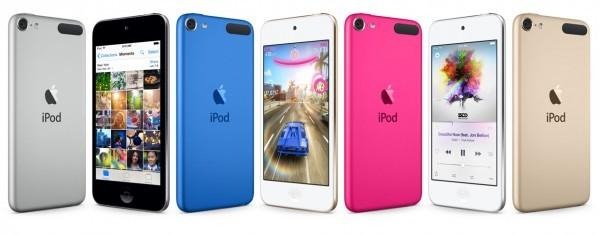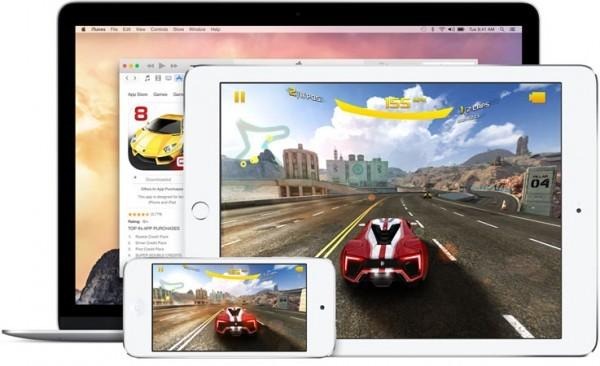Finding a place for the new iPod Touch
Apple just announced something both expected, if you've been reading the signs, and unexpected: a fresh new iPod Touch. Calling it "The Best iPod Touch Yet", the sixth generation of this peculiar device sported new color options and updated hardware with a touch of the iPhone 6. Given the two long years between fifth and sixth generations, one might ask why Apple suddenly showed interest in the device again and if the iPod Touch is still relevant at all. It turns out, it might actually be more relevant to Apple than ever.
An odd duck
The iPod Touch has always been a strange device, one that was still welcomed with open arms and substantial sales records. In essence, it was an iPhone without the phone, giving users the chance to experience the joys of iOS while also catering to Apple's original "mobile" business, a music player. Plus, it stood out a sort of more affordable iPhone, if you don't mind just settling for Wi-Fi instead of cellular.
The new iPod Touch follows this tradition, both the good and the bad. As always, Apple doesn't dwell too much on the specs, but it is crucial all the same. The 4-inch Retina display, with a resolution of 1136x640 pixels, calls to mind the iPhone 5s, though the playful colors might remind you more of the iPhone 5c instead. Inside, however, it bears the heart of the iPhone 6, with an Apple A8 processor and an M8 co-processor. That alone makes the new iPod Touch 10 times more powerful than its predecessor.
But make no mistake, the iPod Touch is no iPhone without a phone anymore. It's an iPhone without Touch ID and without NFC. The absence of the latter might be negligible, but the former is puzzling. Perhaps Apple wanted to have a more acute differentiation from the iPhone. In any case, those absent features are unlikely to turn anyone off.
An iPhone 5s/5c mixed with an iPhone 6 without the phone. Technically, that is what the iPod Touch is, but, of course, there is always more to it than that.

Music
Until recently, Apple has had a thriving business with music, a path that was carved out by the phenomenal success of the iPod and iTunes. That market might have shrunk a bit thanks to the streaming revolution, but Apple has sought to reclaim lost ground with its new Apple Music service. To some extent, the new iPod Touch plays into that thrust as well.
Though it looks and quacks like an iPhone, it formally isn't an iPhone. It's an iPod and its marketing focus has always been the same as that of any other iPod: music. That becomes all the more relevant with Apple Music, something you can't use, at least not comfortably, on a regular non-Touch iPod. Part of Apple Music's appeal isn't just the streaming music itself but the social world that Apple is trying to build up around it. And for that, you'll need colorful displays, an Internet connection, and input capabilities.
You could almost say that the new iPod Touch is the poster child for Apple Music just as the iPod was for iTunes. "Comes with Apple Music" could almost be the slogan for this new device. If Apple could make a portable music player solely for Apple Music, this would be it. It just so happens that Apple Music requires iOS 8.4, so why not throw almost everything in as well.

Will it sell?
That the iPod Touch is intricately linked to Apple Music isn't all that surprising. But that isn't even the biggest question either. That question remains to be "why would anyone want to still buy an iPod Touch today?". Or worded differently, is the IPod Touch still relevant? The answer? It might actually be even more relevant.
The iPod Touch's closest in-house rival isn't actually the iPhone. It's the iPad. Now that might sound like comparing apples to oranges (no pun intended), but consider this. Both are iOS devices that eschew telephony functions. Although an iPad does have cellular data options, both are still primarily reliant on Wi-Fi. As such, both are excellent vehicles for Apple Music in this context. People who still don't have a smartphone or are looking to upgrade won't really be choosing between iPhone or iPod Touch. The choice is already made for them. But those who are already attached to their non-iPhone smartphones, or even a feature phone, will be trying to decide between an iPod Touch or an iPad. That is, of course, if they want in on Apple Music.
The iPad would win in terms of being a more general purpose device, but market figures show that not everyone actually wants a tablet, even those with phones already. The iPod Touch, on the other hand, wins in almost everything else. It is definitely more portable and more handy. You can take it anywhere with you, in your bag or in your pocket. It won't be awkward to use as a camera. And, most importantly, it's hardware is just as up to date as any iPhone or iPad. It makes for a better workout companion compared to the relatively hulking size of an iPad.
That size also plays even against the iPhone 6. Not everyone liked the new size direction that Apple went with last year even if they did like the new design. The new iPod Touch, which has the same size as the iPhone 5s except a bit thinner, gives them an alternative. That is, if they can live without phone calls and SMS. But with iMessage, instant messaging, and VoIP, that might not be much of a loss anymore these days.

Final Take
The new iPod Touch's relevance isn't just tied with it being an "iPhone without a phone" anymore. It is largely tied to Apple Music. Short of calling it the "Apple Music iPod", this sixth generation mobile gives non-iPhone users a chance to taste the iOS and Apple Music experience without having to invest on an iPhone or without having to settle for a large iPad. At $199 for 16 GB of storage, that might not be such a bad deal.
That said, the iPod Touch is intimately tied to Apple Music's fate as well. While it does function well as a music player, aside from brand loyalty or particular inclination towards Apple's way of doing things, the real pull for this particular new iPod Touch will be Apple Music. To that extent, the IPod Touch's success will ride with the rise and fall of Apple Music.
